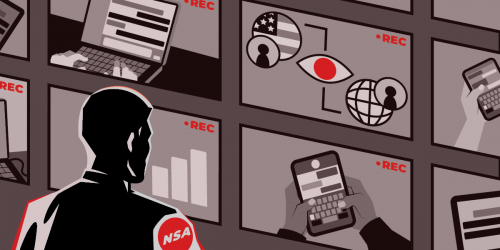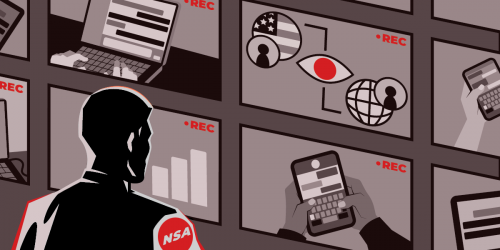Calling something “incidental” makes it sound unplanned. Don’t be fooled; the NSA’s warrantless collection of Americans' communications is anything but unintended or unpredicted.
The intelligence community uses the phrase “incidental collection” to refer to the seizure of Americans’ communications under Section 702 , a surveillance authority ostensibly aimed outside the United States that was enacted as part of the FISA Amendments Act in 2008 and expiring at the end of this year.
But let’s be clear. The fact that Section 702 surveillance regularly results in the collection and search of innocent Americans’ communications is an intended and inherent part of the system.
Under the law, the U.S. government can’t identify Americans as foreign intelligence targets, meaning they can’t use Section 702 surveillance with the goal of collecting specific Americans’ communications. The government is also not supposed to collect “purely domestic” communications between Americans who are located in the U.S.
But the government can and does collect the communications of Americans who communicate with targeted individuals located abroad. It also collects other Americans’ communications that happen to be caught as part of NSA’s targeting of foreigners. That means the government casts a spying net that routinely catches the communications of law-abiding Americans, who are protected by the Fourth Amendment’s privacy protections.
The intelligence community calls this “incidental” collection to downplay the fact that it routinely uses this broad and privacy-invasive foreign intelligence surveillance authority to collect Americans’ communications that should require a warrant.
It’s hard to know how widespread this incidental collection is. Despite past commitments to provide Congress with an estimate of the number of U.S. persons whose communications are swept up “incidentally” under Section 702, the Director of National Intelligence said his office will not be providing that estimate, leaving lawmakers in the dark about how exactly this law affects their constituents.
As Congress debates whether and how to reauthorize Section 702 by the end of this year, you’ll hear surveillance defenders stress that the surveillance of Americans under the law is “incidental.” Remember that the intelligence community’s collection of Americans’ communications is not accidental or insignificant, and your representatives don’t have a clear picture of how that “incidental” collection affects the law abiding Americans they represent.
Contact your members of Congress and tell them to protect their constituents’ privacy from this “incidental” collection and rein in warrantless Section 702 spying.










